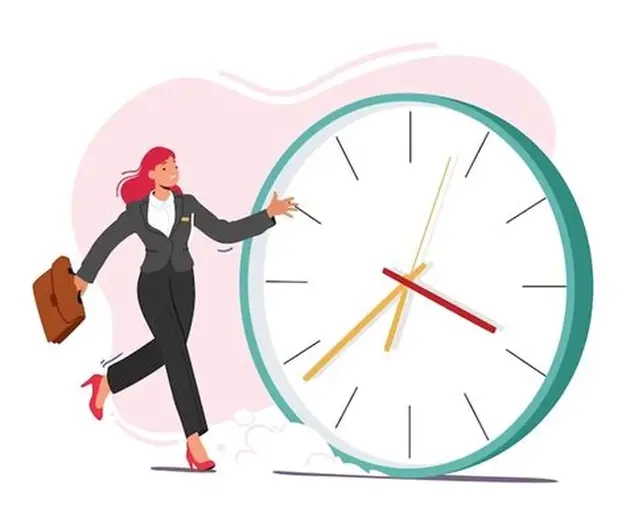Exams can feel like navigating a minefield, but avoiding common exam mistakes is the key to crossing the finish line with confidence. Whether you’re tackling professional qualifications like ICAG or CITG or sweating through a university final, simple errors—like misreading questions or poor time management—can derail even the best-prepared students. This article unpacks the most frequent pitfalls and offers practical, battle-tested strategies to sidestep them, ensuring you maximize your score. Drawing on insights from platforms like Know http://Knowsia.com we’ll equip you with tools to stay sharp, focused, and in control on exam day.
Understanding Common Exam Mistakes
Before diving into solutions, let’s pinpoint the slip-ups that trip up students. These mistakes aren’t just careless errors—they’re habits or missteps that can sabotage your performance if left unchecked.
Misreading Questions: The Silent Score-Killer
One of the most common exam mistakes is misreading questions, leading to answers that miss the mark. For example, in a CITG exam, you might compute taxable income incorrectly because you overlooked a key phrase like “exclude capital gains.” This error stems from rushing or skimming under pressure. According to Tutopiya, misinterpreting instructions is a top blunder in IGCSE exams, and it’s just as prevalent in professional tests like ICAG.
Poor Time Management: Running Out of Clock

Another frequent misstep is mismanaging time, leaving questions unanswered or essays half-finished. Imagine spending 10 minutes on a 4-mark ICAG question, only to scramble through a 20-mark case study. RBIA notes that poor planning heightens stress and leads to incomplete papers, a trap many students fall into.
Over-Reliance on Rote Memorization
Cramming facts without understanding is a recipe for disaster, especially in exams requiring application, like CITG’s Tax Administration. Nhyira Premium University emphasizes that ICAG exams test practical knowledge, not just recall. Students who memorize without grasping concepts struggle with case studies or unexpected question formats.
Neglecting Self-Care: The Burnout Trap
Skipping sleep or meals to cram might seem heroic, but it’s a costly error. RBIA highlights ignored self-care as a top mistake, noting that exhaustion impairs focus and retention. For professional students juggling work and study, this is especially critical.
Strategies to Overcome Common Exam Mistakes
Now that we’ve identified the pitfalls, let’s roll up our sleeves and tackle them with practical fixes. These strategies will help you stay one step ahead.
Read Questions with Laser Focus
To avoid misreading questions, slow down and read actively. Underline keywords like “explain,” “calculate,” or “compare” to clarify what’s being asked. For example, in a CITG exam, a question might ask for “taxable income after deductions”—highlight “after deductions” to avoid errors. If a term confuses you, check the glossary or ask the invigilator (if allowed). https://www.literacentre.com suggests reading questions twice to catch nuances, a habit that saves marks. Practice this with past papers from knowsia.com, which offers ICAG and CITG questions to sharpen your precision.
Master Time Management
Time management is your shield against the clock’s tyranny. Before the exam, create a time allocation plan based on marks. For a 2-hour, 100-mark ICAG exam, allocate ~1.2 minutes per mark—50 minutes for 40 multiple-choice questions, 50 minutes for two essays, and 10 minutes for review. During the test, skim the paper first (1–2 minutes) to prioritize easy or high-mark questions. If you’re stuck, cap time (e.g., 5 minutes for a 5-mark question) and move on. https://knowsia.com/mock tests can help you practice pacing under exam conditions, building speed and confidence.
Embrace Active Learning
Ditch rote memorization for active learning techniques like teaching concepts to a peer or solving case studies. For ICAG’s Financial Reporting, apply theory to real-world scenarios, as Nhyira Premium University advises. Use Knowsia’s practice questions to test your understanding, not just recall. This approach ensures you can handle unexpected twists in exam questions, like a CITG problem requiring tax law application.
Prioritize Self-Care
Your brain needs fuel, not just facts. Get 7–8 hours of sleep nightly—studies show sleep boosts memory consolidation. Eat balanced meals (think protein and complex carbs) to avoid energy crashes. Take short breaks every 50 minutes while studying to recharge. For working professionals, schedule study around peak energy hours, like mornings, to maximize efficiency. RBIA underscores that self-care reduces stress, keeping you sharp for exam day.
Further Reading for Exam Success
To dive deeper into exam preparation, explore these related topics that complement your journey to overcoming common exam mistakes.
Effective Study Techniques for Professional Exams
Boost your prep with proven methods like spaced repetition and active recall, tailored for ICAG and CITG. Learn how to structure your study sessions for maximum retention and application.
The Role of Past Papers in Exam Preparation
Past papers are your secret weapon for mastering exam formats and avoiding surprises. Discover how to use them strategically to spot patterns and refine your approach.
Balancing Work and Exam Study
For working professionals, juggling job demands and exam prep is tough. Get tips on microlearning and efficient scheduling to ace exams without burning out.
Additional Tips to Stay Mistake-Free
- Practice Under Exam Conditions: Simulate the real deal with timed mocks from Knowsia. This builds stamina and exposes weaknesses, like misreading or slow pacing.
- Review Answers Carefully: Reserve 5–10 minutes to check for errors, especially in calculations or essays. ICS Career GPS warns against skipping this step, as careless mistakes cost marks.
- Use a Study Plan: Map out your prep with a timeline, breaking topics into chunks. RBIA suggests tools like calendars or apps to stay organized.
- Stay Calm Under Pressure: If panic creeps in, pause, breathe deeply (4 seconds in, 4 seconds out), and refocus. A clear head prevents rushed errors.
Sample Plan to Avoid Exam Mistakes
For a 2-hour, 100-mark CITG exam:
- Prep: Practice three past papers from Knowsia, timing yourself strictly. Review mistakes to avoid repeating them.
- Exam Day:
- 0–5 min: Skim paper, underline keywords in questions.
- 5–55 min: Tackle 40 multiple-choice (~1.25 min each), checking instructions.
- 55–105 min: Write two essays (25 min each), outlining first to stay focused.
- 105–120 min: Review for errors, ensuring all questions are attempted.
Conclusion
Common exam mistakes don’t have to define your performance. By reading questions carefully, managing time like a pro, embracing active learning, and prioritizing self-care, you can sidestep these pitfalls and shine. Platforms like knowsia.com offer the tools—past papers, mocks, and more—to practice these strategies and build confidence. Start applying these tips today, and you’ll walk into your next

